You’ve heard the claims: Eat protein immediately after your workout! If your gym sesh isn’t sweaty, it’s not effective! Abs are made in the kitchen! Welcome to the relatable, albeit confusing, struggle of exercise nutrition. Whether you’re a devoted fitness enthusiast—or your workouts match your mood—how you fuel your body matters. In fact, it can make or break your overall wellness goals. With that in mind, we’re sharing the gist on workout foods. Get the low-down on pre-workout snacks and ideal post-exercise bites. Plus, we’re debunking outdated nutrition myths. Tired of scarfing down chalky protein shakes? Time to put those days behind you.
Featured image from our interview with Megan Roup.
- Nutrition and Exercise: A Two-Way Street
- Why Pre-Workout Nutrition Matters
- Why Post-Workout Nutrition Matters
- How to Properly Hydrate
- Best Foods to Eat Before a Workout
- Pre-Workout Meal Ideas
- Best Foods to Eat After a Workout
- Post-Workout Meal Ideas
- Do you have to eat protein within an hour of exercise?
- Focus On Your Overall Protein Consumption
- The Low-Down on Protein Bars
- What if I don't have an appetite after I work out?
- Tips for Managing Post-Exercise Appetite
- Eat Smart, Train Hard

Nutrition and Exercise: A Two-Way Street
You’ve unlaced your sneakers, chugged a glass of water, and endorphins are flying high. You open the fridge wondering, “What do I eat now?” It’s an all-too-familiar predicament. Regardless of your health goals—be it weight loss, muscle gain, or hormone balance—nutrition and exercise are tightly knit. Said differently: it’s a two-way street. How you exercise influences your nutritional needs and what you consume impacts your physique outcomes.


Why Pre-Workout Nutrition Matters
Just as a gas tank can’t run on empty, neither does your body. You need nourishment for energy and endurance (whether you’re power walking, cycling, lifting, or flowing on your yoga mat!). To get the most bang for your exercise buck, fuel up. That looks like a balanced ratio of carbs, protein, and healthy fats. More on this, below. Ultimately, this trifecta ensures readily available energy and supports sustained effort. To meet the demands of your training session, make pre-workout nutrition a priority.
Why Post-Workout Nutrition Matters
In that same vein, post-workout nutrition is equally (if not more) important. Don’t expect to hit your fitness goals without properly refueling. To facilitate recovery and replenish depleted glycogen stores, you need nutrients. Specifically? Carbs and protein. Together, these initiate muscle growth and repair. Hello, gains! Eating the right combination of workout foods helps reduce muscle soreness and enhances your body’s ability to evolve. And don’t forget: adequate hydration matters too.

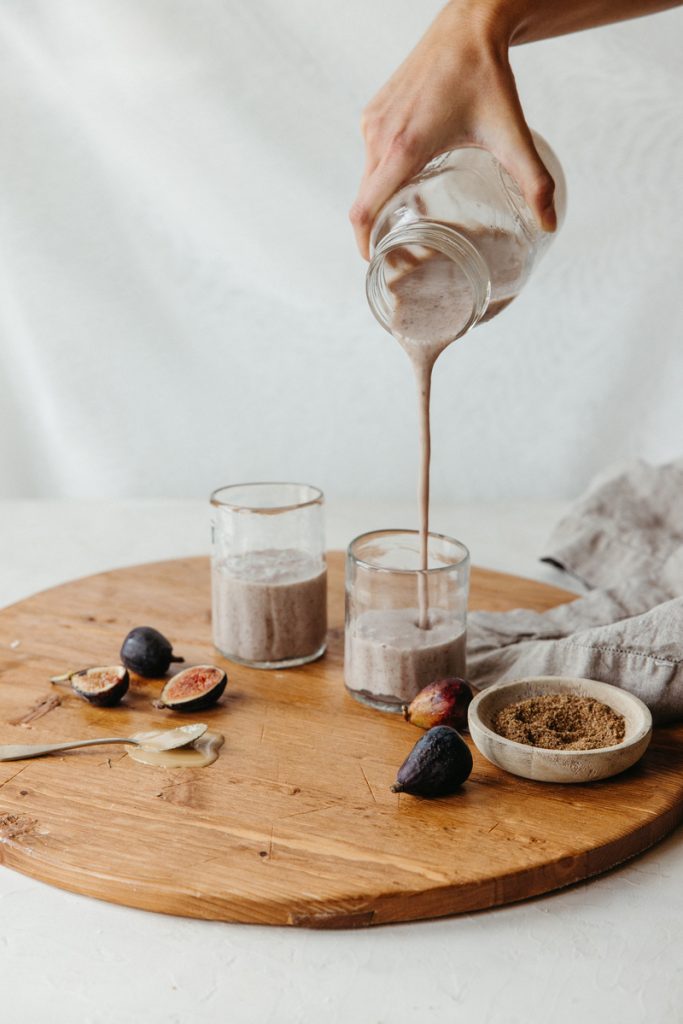
How to Properly Hydrate
Speaking of hydration, being properly hydrated is crucial for optimal exercise performance.
Before Exercise
- Pre-hydrate:
- Exercising in the afternoon? Drink fluids throughout the day to ensure you begin your workout in a well-hydrated state.
- Monitor urine color:
- Check the color of your urine. Light yellow to pale straw suggests proper hydration, while dark yellow or amber may indicate dehydration.
- Drink 16-20 ounces 2-3 hours before:
- Consume about 16-20 ounces (500-600 ml) of water 2-3 hours before exercise. If you anticipate sweating heavily during your workout—especially in a hot and humid environment—pre-exercise electrolyte intake is key. We love Kroma Wellness and LMNT. Add them to your water bottle and you’re good to go.
- Sip water leading up to exercise:
- Continue to sip water in the hour leading up to your workout.
During Exercise
- Hydrate regularly:
- Drink fluids (small sips) throughout your workout.
- Consider electrolytes for intense workouts:
- For activities lasting more than an hour, consider electrolytes to replenish sodium, potassium, and other minerals lost through sweat.
- Listen to your body:
- Pay attention to your body’s signals. Thirst is a good indicator, of course. If you’re sweating heavily, drink up.
After Exercise
- Rehydrate:
- After exercise, rehydrate by drinking water (or an unsweetened sports recovery drink) that includes electrolytes.
- Eat water-rich foods:
- Include water-rich foods—cucumber, tomatoes, bell peppers, celery, watermelon, and strawberries—in your post-exercise meal to contribute to hydration.


Best Foods to Eat Before a Workout
Before hitting the pavement, provide your body with the right fuel to power through your workout. As mentioned, pre-workout nutrition serves as the energy source that sustains your efforts, improves focus, and enhances endurance.
Complex Carbohydrates
Foods like whole grains, oats, and sweet potatoes release a steady supply of energy, preventing fatigue during prolonged workouts.
Lean Proteins
Chicken, turkey, or plant-based protein sources (tofu) aid in muscle preservation and provide a sustained release of energy.
Healthy Fats
Incorporating sources like avocados and nuts helps maintain energy levels and supports overall well-being.

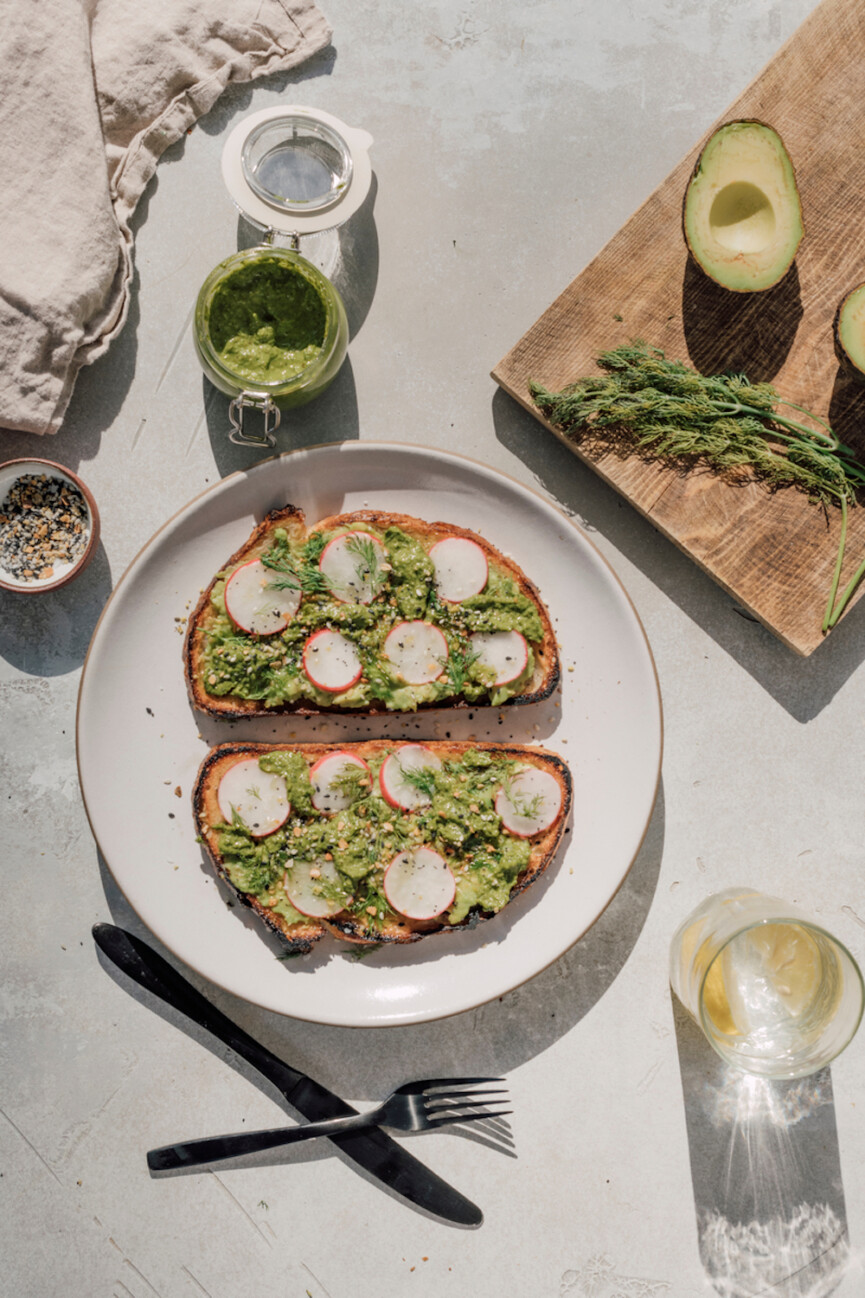
Pre-Workout Meal Ideas
In need of inspo? We have you covered. Keep in mind that what type of exercise you’re doing (and the duration) will impact your pre-workout nutrition.
Whole grain toast with nut butter: Provides complex carbohydrates for sustained energy and healthy fats and protein for muscle support.
Greek yogurt with berries: Offers a mix of protein, carbohydrates, and antioxidants for energy and muscle recovery.
Banana with almond butter: Combines easily digestible carbohydrates with healthy fats and protein for a quick energy boost. Try our banana and nut butter toast for the ultimate fuel source!
Oatmeal with milk and fruit: Supplies complex carbohydrates, protein, and vitamins for lasting energy and muscle support.
Chicken and vegetable stir-fry with brown rice: Provides a balance of protein, complex carbohydrates, and fiber for sustained energy and muscle fuel. Sub the chicken for tofu or edamame.
Cottage cheese with pineapple: Offers a mix of protein and carbohydrates, aiding in muscle repair and providing quick energy.
Rice cake with avocado: Combines complex carbohydrates with healthy fats for a light, easily digestible option before exercise.

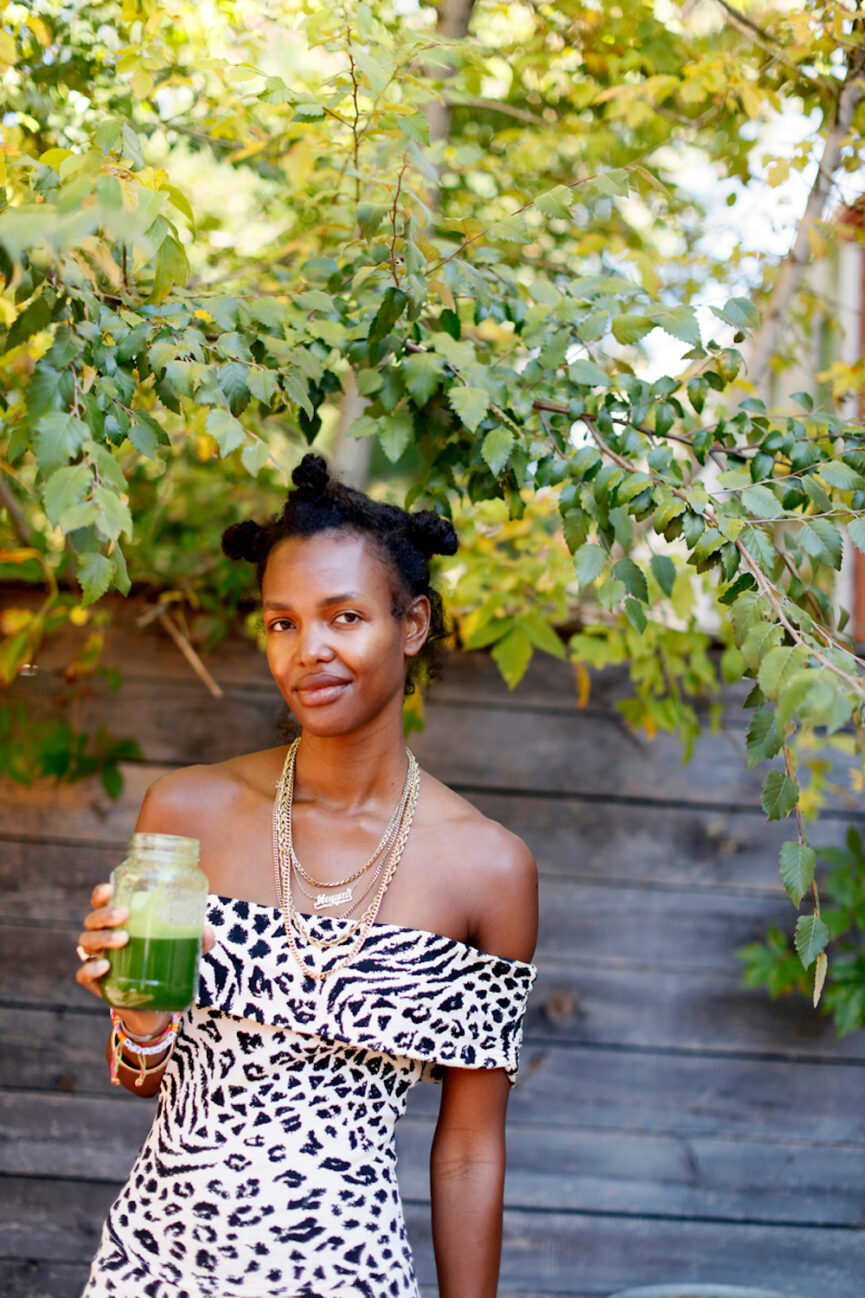
Best Foods to Eat After a Workout
After the last rep and the final push, the focus shifts to recovery. Time to replenish glycogen stores, repair muscle tissue, and optimize recovery.
Protein-Rich Foods
Chicken, fish, eggs, and plant-based protein sources aid in muscle repair and growth.
Carbohydrates
Rapidly replenish glycogen stores with sources like fruits, rice, and root vegetables (particularly, beets!) promoting quick recovery.
Hydration
Rehydrate with water or electrolyte-rich beverages to replace fluids lost during the workout.
Anti-Inflammatory Foods
Incorporating foods like berries, leafy greens, and omega-3-rich fish can reduce inflammation and speed up recovery.

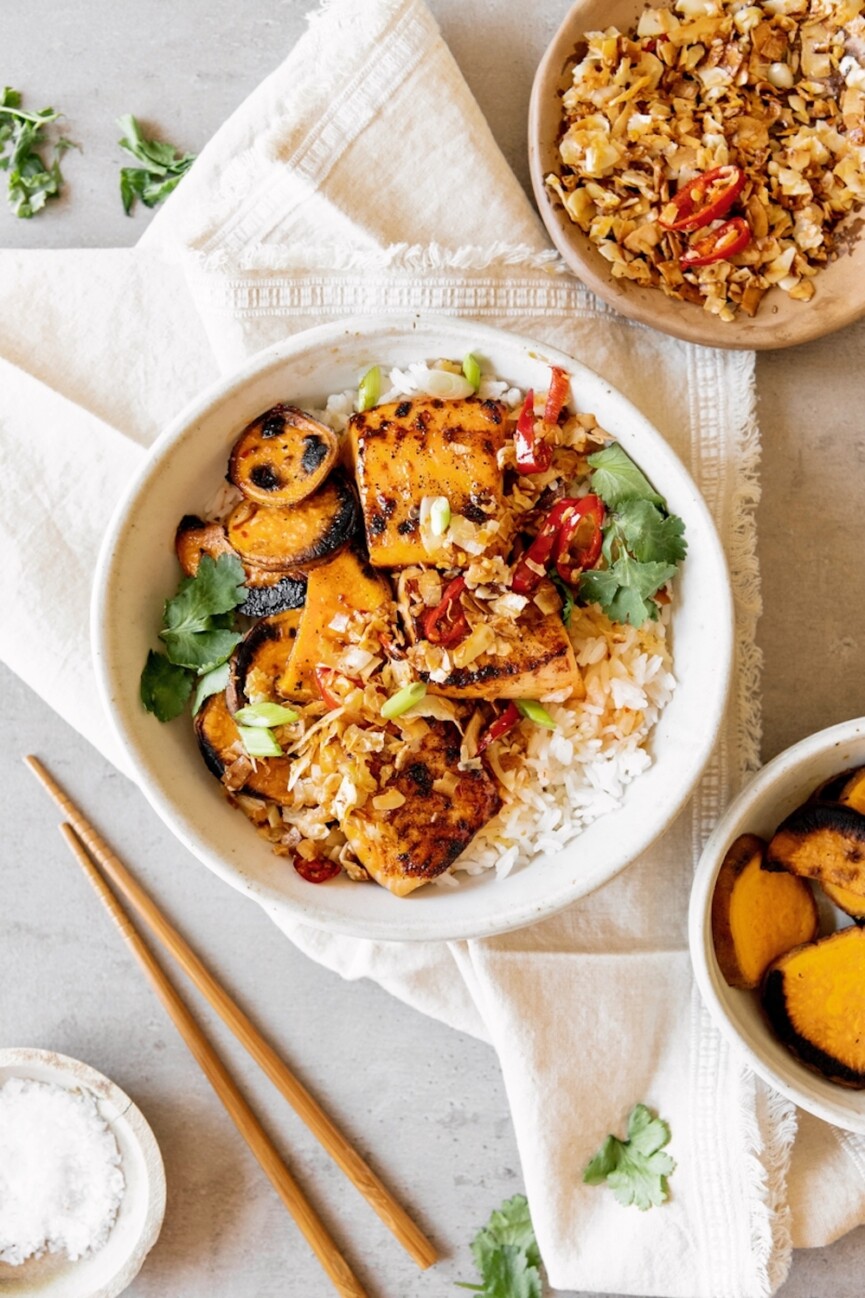
Post-Workout Meal Ideas
Grilled chicken with quinoa and steamed veggies: Provides lean protein for muscle repair, quinoa for carbohydrates, and a variety of vegetables for vitamins and minerals.
Salmon with roasted sweet potato and broccoli: Offers omega-3 fatty acids in salmon for anti-inflammatory benefits, sweet potatoes for complex carbohydrates, and broccoli for fiber and antioxidants.
Whole grain pasta with lean ground turkey: Combines carbohydrates from whole grain (or gluten-free) pasta, protein from lean turkey, and antioxidants from tomato sauce.
Tofu stir-fry with basmati rice and mixed veggies: Provides plant-based protein from tofu, complex carbohydrates from brown rice, and a variety of vegetables for nutrients.
Turkey and avocado wrap: Combines lean protein from turkey, healthy fats from avocado, and whole grains for a balanced post-workout meal.
Quinoa salad with chickpeas, spinach, and feta: Offers a protein-packed vegetarian option with quinoa, chickpeas, and the nutrient boost of spinach and feta.
Banana and peanut butter smoothie: Blends the quick-digesting energy of a banana with protein and healthy fats from peanut butter. Add a scoop of your favorite vanilla protein powder for an extra boost of muscle-building protein.
Veggie omelette with sourdough toast: Combines protein from eggs, fiber and nutrients from vegetables, and complex carbohydrates from the toast.


Do you have to eat protein within an hour of exercise?
Depends. One of the more popular nutrition myths, this concept suggests there’s a limited time frame (usually 30-60 minutes) in which to consume protein. This specific anabolic window or “golden hour” taps into the notion that if you eat protein shortly after exercising, you can reap multiple benefits—i.e., maximized muscle protein synthesis and enhanced recovery time. Ultimately, the jury’s still out. Data shows that the importance of timing might be less critical than we once thought.
Focus On Your Overall Protein Consumption
Instead, your overall protein intake is likely more important than the narrow post-exercise window. After all, protein synthesis is an ongoing process! And your body can benefit from protein consumption at any time of the day. If you eat a meal that includes 20-40 grams of protein within a couple hours after your workout, you’re likely to provide your body with the necessary nutrients for recovery and muscle repair.

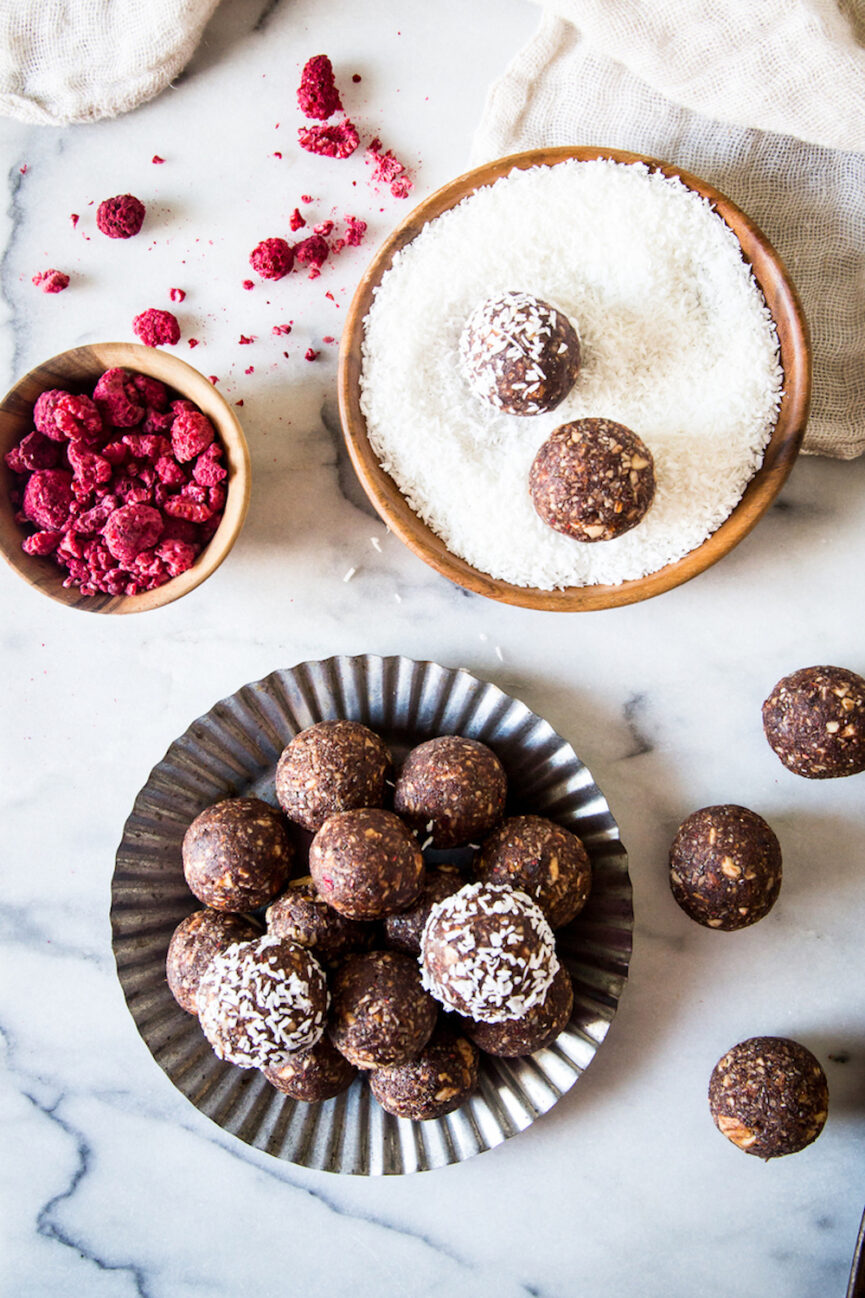
The Low-Down on Protein Bars
Are protein bars worth the hype—especially after a workout? In some cases, yes. Protein bars are a convenient and effective post-workout snack, aiding in muscle recovery. But, the healthiness of a protein bar depends on its ingredients. Many bars are loaded with sugar, artificial additives, and low-quality protein sources. If you’re in a pinch, aim for a bar with at least 10 grams of high-quality protein, five grams of fiber, and less than eight grams of added sugar. Ideally, whole food protein sources should complement (or replace) protein bars for a more nourishing post-workout meal.


What if I don’t have an appetite after I work out?
If you aren’t particularly hungry after exercising, you aren’t alone. A few factors play into this phenomenon: hormonal changes (an uptick in cortisol and adrenaline), elevated body temperature, and dehydration. Additionally, because blood flow is redirected to your muscles—away from your stomach—it’s not uncommon to feel full. Last but not least, the type/intensity of your workout matters. High-intensity workouts, especially those that entail bouncing and running, often cause a decreased appetite.
Tips for Managing Post-Exercise Appetite
Because post-workout nutrition is key, here are ways to support a robust appetite. First and foremost, make sure you’re adequately hydrated before, during, and after exercise. Second, start by eating a small post-exercise snack—Greek yogurt with fruit, a hard-boiled egg with string cheese, or a bowl of edamame with sea salt. Third, include hydrating foods (cucumber, watermelon, etc.). These are easy to digest and can stimulate appetite.
If a persistent lack of appetite interferes with your overall nutrition and well-being, chat with your healthcare provider or a registered dietitian for personalized advice.

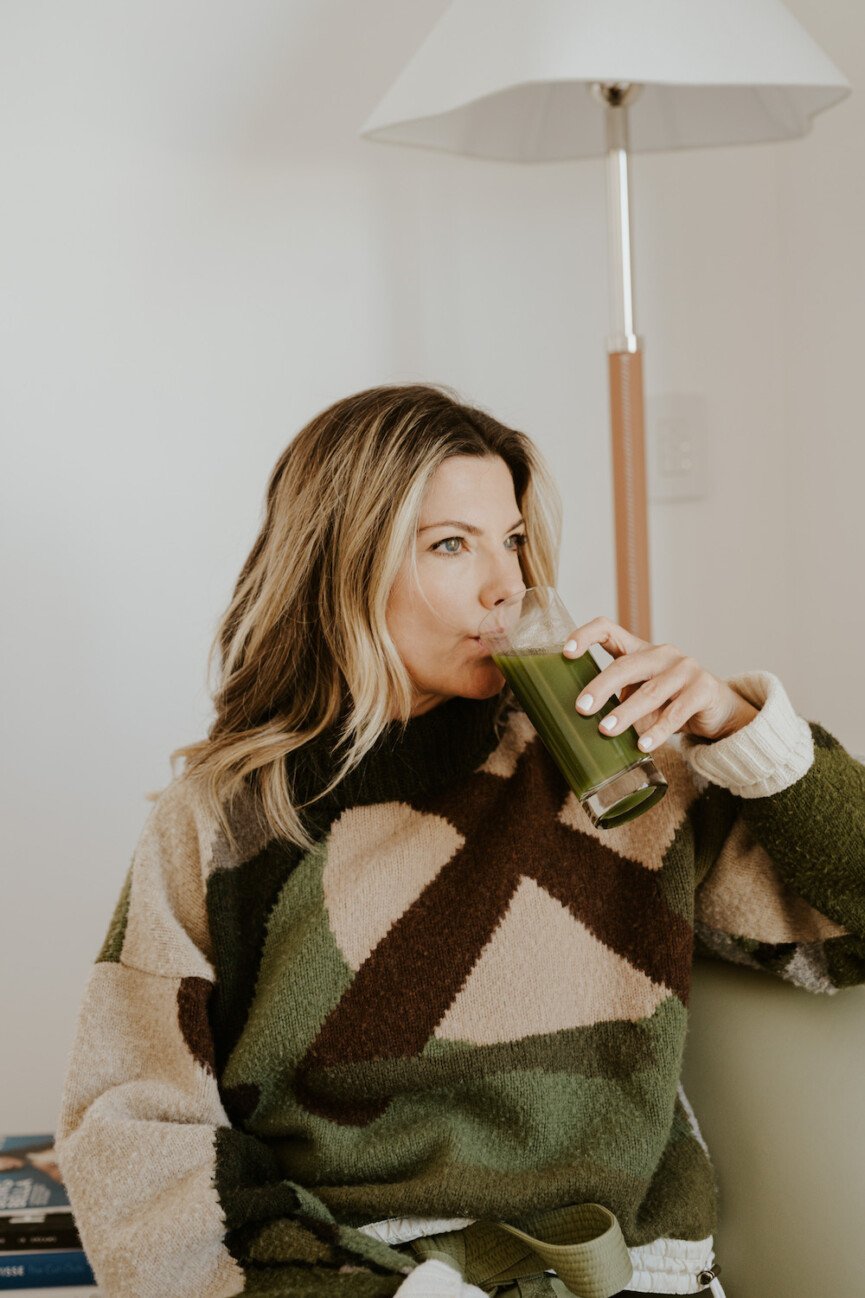
Eat Smart, Train Hard
In the web of nutrition and exercise, success lies in finding what works for you. Often times, a bit of trial and error is necessary! Plus, you’ll need to tailor your food choices to complement whatever you’re training for. This will help you maximize your performance and accelerate you in the direction of your fitness goals. Remember, it’s not just about what you do in the gym—it’s about what you put on your plate. Fuel your body wisely and your workouts will reach new heights.






